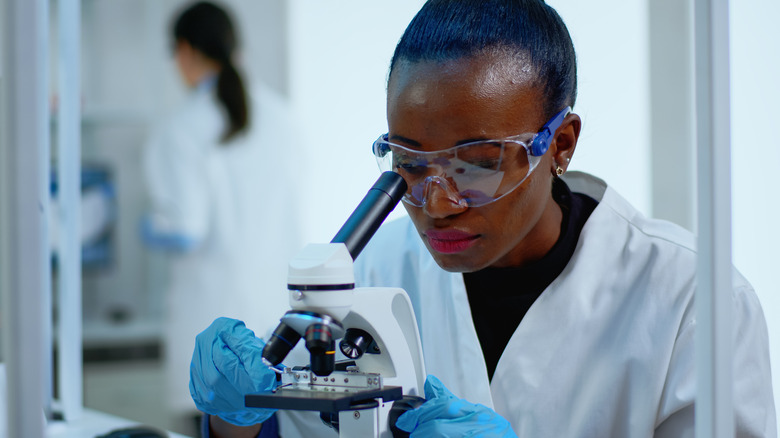How Scientists May Soon Be Able To Make Your Skin Cells Act 30 Years Younger
Stem cell research has significantly evolved over the last few decades. The Roslin Institute in Edinburgh made medical history in the late 90s with the creation of a sheep famously known as Dolly — a cloned mammal produced from an adult mammary cell of a 6-year-old sheep (via Daily Mail).
A subsequent breakthrough took place in 2007 when Dr. Shinya Yamanaka won the Nobel Prize for finding a way to reprogram skin cells into stem cells able to be modified into any type of cell. Now, new research published in eLife has built upon Dr. Yamanaka's technique known as IPS, in which chemicals are added to adult cells to alter their state over the course of 50 days. Researchers from the Babraham Institute in Cambridge reduced this time frame down to 12 days. After such time, the modified cells were found to genetically resemble and function in the same way as cells roughly half their age (via BBC).
A potential treatment for age-related health conditions
Using skin cells from a 53-year-old woman, researchers determined that these newly modified cells operated like those of someone in their early 20s. The leader of the research team Professor Wolf Reik recalls the day of the discovery, telling BBC, "I remember the day I got the results back and I didn't quite believe that some of the cells were 30 years younger than they were supposed to be. It was a very exciting day!"
In addition to the rejuvenation of skin cells, scientists are hopeful that these findings may one day help inform how best to treat patients with heart disease, diabetes, neurological conditions, and other age-related diseases by counteracting the natural breakdown of our cells over time, reports BBC. The method may also hold potential for treating age-related cognitive decline such as Alzheimer's disease by reverse-aging the genes responsible for the condition (via Daily Mail).
However, researchers noted that IPS has been linked with an increased risk of cancer and is therefore in need of further study before it could be implemented as a form of clinical treatment (via BBC). However, Professor Reik feels that through the continued development of safer methods, the ability to bottle youth could potentially occur in the not-so-distant future.


